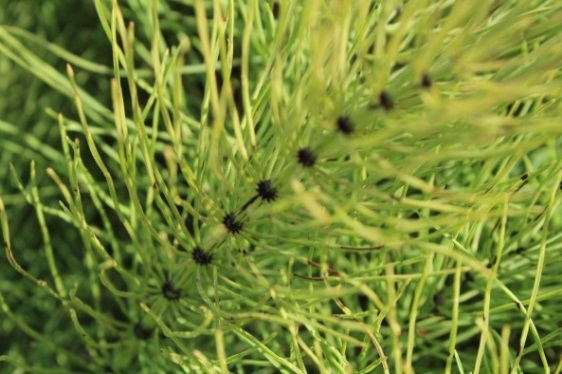Horsetail Jointed Grass

Botanical Name: Equisetum arvense
Common Name: Field Horsetail
Other Names: Naparuaqutaq (something like tree/spruce plant)
Found in: Grows well in areas that do not excessively dry
Physical Characteristics: A fertile, brown, branchless stem in the spring. In the summer stage, this plant is green and branching.
Nutritional Value: mineral rich, silica, thiaminas
Parts of the plant used: The fertile, brown, branchless stems.
When plant should be gathered: Mid April to early June
Plant applications: food
Reported Benefits: food, not considered medicinal although they are very high in nutrition, it is used as a side dish.
Preparation/Processing: Stems are boiled for approximately fifteen minutes and eaten with seal oil.
(In one interview in the 1930’s it was said the Aleut fed a decoction of these plants to a hated guest as a magical poison.)
WARNING: Avoid horsetail if you are at risk of low potassium because horsetail may increase potassium excretion. Avoid horsetail if you have gout, diabetes or kidney or heart problems as well. Horsetail may interact with diuretics, alcohol, nicotine patches or gum and the drug lithium. Those who are pregnant or breastfeeding should not take a horsetail supplement.
Horsetail Herb Side Effects: If taking a horsetail supplement, then fluid intake should also be increased, as its diuretic effects will cause the body to rid itself of a lot of fluids.
